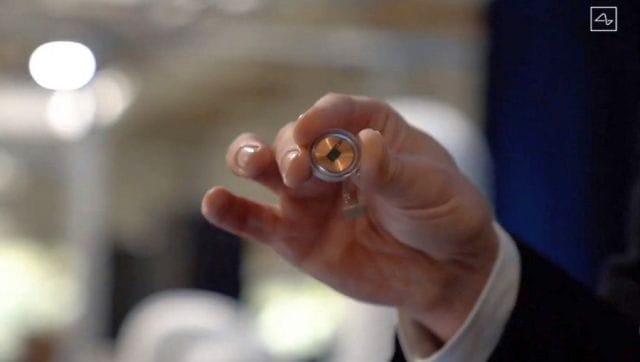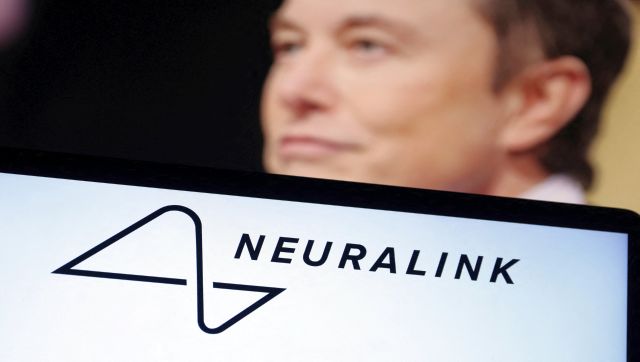Microchips in the brain was an idea that we thought wouldn’t come true. However, Elon Musk’s brain-implant company, Neuralink, has received a green light from the US Food and Drug Administration (FDA) to kickstart its first in-human clinical study. The Elon Musk-led company hailed the FDA’s decision and said the human trials would be a “important first step” for its technology, which is intended to let brains interface directly with computers. “We are excited to share that we have received the FDA’s approval to launch our first-in-human clinical study,” Neuralink said in a post on Musk-run Twitter. Musk’s plans for Neuralink, which he launched in 2016, is allowing the brain to control complex electronic devices via a chip, letting people with paralysis regain motor function, restoring vision, and treating brain diseases such as Parkinson’s, dementia and Alzheimer’s. Let’s take a closer look at what exactly Neuralink is and how would it potentially work? What is it? In essence, Neuralink wants to put coin-sized brain implants into human beings. According to The Business Times, the product comprising a tiny device and electrode-laced wires is meant to be implanted into the brain – alongside a robot that carves out a piece of a person’s skull. The aim of the brain-computer interface, known as a BCI, is initially to allow a person with a debilitating condition — such as amyotrophic lateral sclerosis (ALS) or the aftereffects of a stroke — to communicate via their thoughts. The Neuralink device would translate the neuronal activity into data that could be interpreted by a computer, as per the report. Musk has also spoken of melding the brain with Artificial Intelligence. As per Business Insider, Musk in 2019 told Artificial Intelligence podcast host Lex Fridman that Neuralink was “intended to address the existential risk associated with digital superintelligence.” “We will not be able to be smarter than a digital supercomputer, so, therefore, if you cannot beat ’em, join ’em,” Musk added. The company is developing brain chip interfaces that it says could enable disabled patients to move and communicate again, with Musk adding on Wednesday that it will also target restoring vision. Based in the San Francisco Bay Area and Austin, Texas, Neuralink has in recent years been conducting tests on animals as it seeks approval from the US Food and Drug Administration (FDA) to begin clinical trials in people. “We want to be extremely careful and certain that it will work well before putting a device into a human,” Musk had said earlier during a much-awaited public update on the device. Speaking to a crowd of select invitees in a presentation at Neuralink headquarters in December last year, Musk had emphasised the speed at which the company is developing its device. “The progress at first, particularly as it applies to humans, will seem perhaps agonizingly slow, but we are doing all of the things to bring it to scale in parallel,” he added. “So, in theory, progress should be exponential.” The first two human applications targeted by the Neuralink device will be in restoring vision and enabling movement of muscles in people who cannot do so, Musk had said. “Even if someone has never had vision, ever, like they were born blind, we believe we can still restore vision,” he said. [caption id=“attachment_8806421” align=“alignnone” width=“1280”] Elon Musk at Neuralink presentation with robot. Image credit: Steve Jurvetson/Flickr, CC BY-SA[/caption] Repeated delays The FDA approval on Thursday is a big step for Neuralink, which has had a history of running behind schedule. Musk had said in a 2019 presentation he was aiming to receive regulatory approval by the end of 2020. He then said at a conference in late 2021 that he hoped to start human trials in 2022. Neuralink has repeatedly missed internal deadlines to gain FDA approval to start human trials, current and former employees have said. Musk approached competitor Synchron earlier in 2022 about a potential investment after he expressed frustration to Neuralink employees about their slow progress, Reuters reported in August 2022. Synchron crossed a major milestone in July by implanting its device in a patient in the United States for the first time. It received US regulatory clearance for human trials in 2021 and has completed studies in four people in Australia. [caption id=“attachment_12648332” align=“alignnone” width=“640”]
 The Neuralink disk implant held by Elon Musk during the presentation on 28 August 2020. Neuralink aims to meshing brains with computers, saying the work is vital to the future of humanity. File image/AFP[/caption] Controversies regarding experiments There have also been controversies regarding Neuralink’s experiments on monkeys. Neuralink’s last public presentation involved a monkey with a brain chip that played a computer game by thinking alone. However, one physician’s group says that doesn’t tell the full story. As per Yahoo Finance, Physicians Committee for ResponsibleMedicine, sued the University of California, Davis, which partnered with Neuralink, to get the details. Public records obtained showed sloppy experiments on animals that caused chronic infections, seizures, paralysis, internal bleeding, and declining psychological health before they were killed. In two separate incidents, experimenters filled holes in monkeys’ skulls with an unapproved adhesive, which seeped through to the animals’ brains. In one monkey, the adhesive caused bleeding in her brain, and she vomited so much from the resulting side effects that she developed open sores in her oesophagus, the records showed. Animal 11, a 10-year-old female macaque, underwent a six-hour surgery in which holes were drilled in her skull and electrodes implanted in her brain. Records show that the implants became infected almost immediately, the “skin was eroded,” and she was “scratching at left implant.” The skin on her head was soon “pierced” by the metal implant and there was “dark dried blood” around it. While staff attempted to clean the discharge and wound, they could not remove all of it. A week later, Animal 11 died after another invasive procedure. “When it comes to Neuralink, Elon Musk is just a modern-day PT Barnum,” says Ryan Merkley, director of research advocacy with the Physicians Committee. “He’s a showman who makes big promises while hiding the grisly details from the public. We’re pulling back the curtain on him.” What do experts say? Experts remain sceptical, particularly about Musk’s more outlandish claims such as Neuralink allowing people to read other people’s thoughts, saving and replaying memories, and summoning their cars via thoughts – which sound more like science fiction than actual science. Neuroscientist professor Andrew Jackson of the University of Newcastle told Business Insider in 2020: “Not to say that that won’t happen, but I think that the underlying neuroscience is much more shaky. We understand much less about how those processes work in the brain, and just because you can predict the position of the pig’s leg when it’s walking on a treadmill, that doesn’t then automatically mean you’ll be able to read thoughts.” Another professor, Andrew Hires, told Insider Musk’s claims about merging with AI is where he goes off into “aspirational fantasy land.” With inputs from agencies Read all the Latest News , Trending News , Cricket News , Bollywood News , India News and Entertainment News here. Follow us on
Facebook,
Twitter and
Instagram.
The Neuralink disk implant held by Elon Musk during the presentation on 28 August 2020. Neuralink aims to meshing brains with computers, saying the work is vital to the future of humanity. File image/AFP[/caption] Controversies regarding experiments There have also been controversies regarding Neuralink’s experiments on monkeys. Neuralink’s last public presentation involved a monkey with a brain chip that played a computer game by thinking alone. However, one physician’s group says that doesn’t tell the full story. As per Yahoo Finance, Physicians Committee for ResponsibleMedicine, sued the University of California, Davis, which partnered with Neuralink, to get the details. Public records obtained showed sloppy experiments on animals that caused chronic infections, seizures, paralysis, internal bleeding, and declining psychological health before they were killed. In two separate incidents, experimenters filled holes in monkeys’ skulls with an unapproved adhesive, which seeped through to the animals’ brains. In one monkey, the adhesive caused bleeding in her brain, and she vomited so much from the resulting side effects that she developed open sores in her oesophagus, the records showed. Animal 11, a 10-year-old female macaque, underwent a six-hour surgery in which holes were drilled in her skull and electrodes implanted in her brain. Records show that the implants became infected almost immediately, the “skin was eroded,” and she was “scratching at left implant.” The skin on her head was soon “pierced” by the metal implant and there was “dark dried blood” around it. While staff attempted to clean the discharge and wound, they could not remove all of it. A week later, Animal 11 died after another invasive procedure. “When it comes to Neuralink, Elon Musk is just a modern-day PT Barnum,” says Ryan Merkley, director of research advocacy with the Physicians Committee. “He’s a showman who makes big promises while hiding the grisly details from the public. We’re pulling back the curtain on him.” What do experts say? Experts remain sceptical, particularly about Musk’s more outlandish claims such as Neuralink allowing people to read other people’s thoughts, saving and replaying memories, and summoning their cars via thoughts – which sound more like science fiction than actual science. Neuroscientist professor Andrew Jackson of the University of Newcastle told Business Insider in 2020: “Not to say that that won’t happen, but I think that the underlying neuroscience is much more shaky. We understand much less about how those processes work in the brain, and just because you can predict the position of the pig’s leg when it’s walking on a treadmill, that doesn’t then automatically mean you’ll be able to read thoughts.” Another professor, Andrew Hires, told Insider Musk’s claims about merging with AI is where he goes off into “aspirational fantasy land.” With inputs from agencies Read all the Latest News , Trending News , Cricket News , Bollywood News , India News and Entertainment News here. Follow us on
Facebook,
Twitter and
Instagram.
Elon Musk’s brain-computer interface company Neuralink has received approval from the FDA to conduct its first in-human clinical study. The firm wants to put coin-sized implants into human beings, which will allow people with paralysis regain motor function, restore vision, and treat brain diseases
Advertisement
End of Article


)

)
)
)
)
)
)
)
)



